As we farewell the Vice-Chancellor Professor Harlene Hayne, the Development and Alumni Relations Office would like to pay tribute to her service to the University over the past 10 years, and to her dedication to both the students of Otago and its alumni.
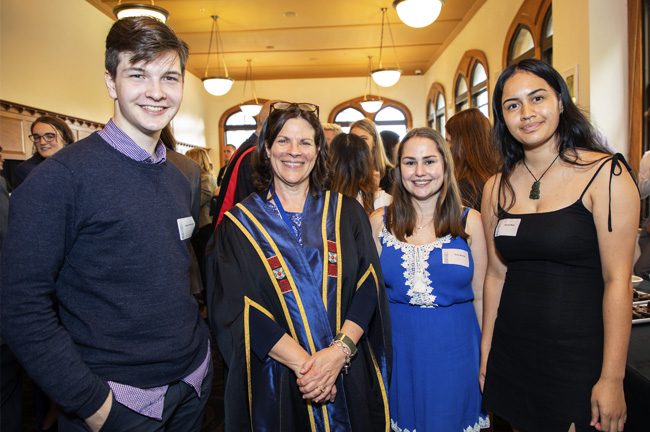
Professor Hayne with Alumni scholarship students in March 2020. Photo courtesy of Sharron Bennett
Professor Hayne has been untiring in her advocacy of our students, working closely with them alongside all sectors of the University to further their academic achievements and opportunities; to grow their sense of local and global citizenship; and support their personal well-being. She was also a great supporter of all things alumni, valuing the importance of alumni relationships and understanding the myriad of benefits this can bring to the overall health of the University. At each and every alumni event she sought to make connections with people, to talk about their Otago experiences, share their stories and hear their ideas. Always seeking to move Otago forward, during the University's 150th anniversary she framed the celebrations as an opportunity to reflect on the achievements of the past while using this knowledge and experience to inform our future.
When COVID-19 struck, she led and championed student relief fund Pūtea Tautoko, to make sure no student was disadvantaged by circumstances beyond their control. This initiative resulted in an outpouring of support for students at a level that has never before been seen at Otago.
We thank Professor Hayne for her wide-reaching and valuable contribution to Otago, and wish her all the very best in the next chapter of her journey.
We invite you to watch Professor Harlene Hayne being awarded her Honorary Doctorate at the recent Graduation Acknowledgement Ceremony.
Shelagh Murray
Director Development and Alumni Relations
As Professor Hayne was unable to farewell alumni in person as intended during the past month, we have extended here, as a personal farewell from her to all alumni, the speech she gave at an alumni function in Auckland in early February:
Speech to Auckland Alumni from Vice-Chancellor Professor Harlene Hayne
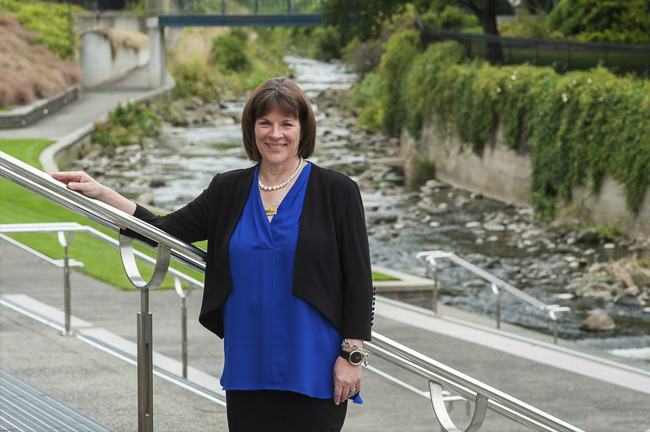
Vice-Chancellor Professor Harlene Hayne
E ngā mana, e ngā reo, rau rakatira ma, tēnā koutou katoa
Nō reira, ko wai au?
Ko Harlene Hayne taku ingoa
Ko te tumuaki o te Whare Wānaka o Ōtākou ahau
Ngā mihi nui ki a koutou
Nō reira, tēnā koutou, tēnā koutou, tēnā tatou katoa
Kia ora everyone. My name is Harlene Hayne and I have the privilege of being the Vice-Chancellor at the University of Otago. On behalf of the University, it is wonderful to see so many of you here this evening.
I think we should take a moment to reflect on the fact that we are gathered here in this lovely venue enjoying a glass of wine and each other's company. This kind of event is virtually unheard of in most parts of the world.
The unprecedented freedom that we currently enjoy here in New Zealand is due to a number of factors:
The wise leadership of our kind, caring, and compassionate Prime Minister and Director General of Health;
The co-operation of our team of 5 million New Zealanders;
And the evidence base that we all relied upon to keep the country the safe.
In fact, the key hallmark of New Zealand's response to COVID-19 is that it has been evidenced-based; much of that evidence has been provided by experts at the University of Otago.
Our experts provided advice to Government on the diagnosis, containment, and contract tracing of COVID-19; others are currently working on a vaccine. In addition, our experts have provided advice and commentary on the impact of the pandemic on the disability sector, the economy, mental health, tourism, Māori and politics. When the country was running short on hand-sanitiser or swabs, experts at Otago set up manufacturing operations on campus.
One of our experts, Dr Ayesha Verrall – a former OUSA President, was recently elected to Parliament and currently serves as the Associate Minister of Health. Professor David Murdoch, the Dean of University of Otago Christchurch sits on the international panel of experts evaluating current vaccine candidates. Professor Patricia Priest has recently been seconded to Government to help with the vaccine roll-out in New Zealand. Professor Michael Baker and Professor Nick Wilson from our Wellington Campus, and Dr Jemma Geoghegan and Professor Sir David Skegg from our Dunedin campus have become household names as they continue to provide highly accessible media interviews about the public health and the biology of the virus.
One of the reasons that New Zealand has been able to contain the virus is because the Prime Minister adopted a "go hard, go fast" strategy, imposing a complete lockdown of the country that began in March of last year, but this lockdown had significant implications for the way in which we were able to teach our more than 20,000 students. Within 24 hours of the PM's announcement, staff rapidly moved our complex teaching programme online. At the height of lockdown, we were teaching more than 1,000 different classes by distance. We shipped almost 500 computers to people who lacked the devices they need to work or study from home.
Remarkably our students performed as well as or better than they did in 2019. By the end of the year our attrition rate was equal to or lower than that in a typical year. Our students' high level of success is due not only to their hard work and dedication, but also to the hard work and dedication of many, many academic and professional staff who supported our students through the single greatest disruption since World War II.
Despite their academic success, however, COVID-19 has wreaked havoc on the livelihoods of many of our students' families. In some instances, both parents (and sometimes both grandparents) have been made redundant. In response to this high level of need, we established a student support fund, Pūtea Tautoko. This fund is comprised of both Government support and generous donations from staff and alumni. To date, we have given out more than $4 million in support to our students. We suspect that this level of need will continue in 2021. I would like to personally acknowledge the contributions that many of the people in this room have made and continue to make to the Pūtea Tautoko fund.
Our research programmes also flourished during 2019. Academic staff continued to earn more than their fair share of grant money and published more papers in 2020 than they did in 2019. Our COVID research experts continue to dominate the press here in New Zealand where we have all learned to trust their very considered advice and recommendations.
And if COVID wasn't enough, at the end of the last year we had a terror threat that forced us to cancel all of our December graduations – this disruption was particularly heart-breaking because these ceremonies would have been the first for the year – we had also assembled a distinguished list of graduation speakers, many of whom had been actively involved in the fight against COVID-19. But once again, the University rose to the challenge of a major set-back.
We rapidly set up our own, personal pop-up graduation ceremonies on campus, where the Chancellor and I handed students their certificates one-at-a-time with their family and friends in tow. It was a wonderful, personal, and very Otago way to mark the students' achievements. Over the course of those two weeks, 2,500 students and their families learned that joy (and a little bit ingenuity) triumphs evil every time.
As a University community, we learned many important lessons in 2020. Many of these lessons sum up what I have learned in my time as Vice-Chancellor here. For example, we have learned that our students are firmly committed to an on-campus, in-person learning environment. Many of them arrived on the doorstep of their residential colleges at midnight as soon as they were able to return to campus. We all acknowledge the value of technology, but that technology will never replace the importance of human interaction in our world-class university education.
We have also learned to trust ourselves. Some of the extremely difficult decisions that we have made over the years paid off in response to COVID-19. Our new professional staff structure allowed us to work as a single organisation during lockdown and beyond. By way of example, during the lockdown period between 26 March and 15 May, AskOtago handled almost 49,000 contacts by phone or email. They provided the single source of truth – a truth that was updated multiple times each day.
Additionally, the fact that we had already cut our cloth to fit our income meant that we entered the pandemic in a strong financial position. Because we consistently resisted Government pressure to remove our cap on international student numbers, we were not nearly as exposed to the international market as our counterparts in this part of the world. Taken together, our very tough decisions mean that we are not facing the kind of financial crisis that many universities around the world are facing now.
Finally, our experience this year has underscored the valuable contribution that this university can make to the world in which we live. Going forward, we will continue to be guided by our motto: Sapere Aude, Dare to be Wise. We will continue to assist where we can in the fight against COVID-19 and we look forward to contributing to New Zealand's recovery. We will also continue to conduct world-class research across the University, using the outcome of that research to solve other big challenges facing our communities, our country, and the rest of the world. Most importantly, we will continue to inspire the young minds who join us every year in our unique living and learning environment.
This pandemic has been the ultimate disrupter. At Otago, we have experienced periods of both fear and frustration. At the same time however, we have also learned that we are bolder and braver than we ever imagined. We have stepped outside the ivory tower, rolled up our sleeves, and helped save a nation from the devastation of COVID-19.
In closing, as many of you will be aware, I will be leaving Otago in April to take up the role of Vice-Chancellor at Curtin University in Perth, Australia. As you can imagine, I will be leaving Otago with very mixed emotions. This University has given me a career that has been second to none. Along the way, I have met so many wonderful people – including alumni like you.
I was selected as the Vice-Chancellor at the University of Otago in January of 2011. In February of that year, a series of strong earthquakes rocked Christchurch, closing our main building in that city for over two years. In my final year as Vice-Chancellor, we experienced an international pandemic and a terror threat against our graduation ceremonies. In short, my term here has been book-ended by crisis.
We have also experienced other crises along the way; the Christchurch massacre, a fire at Unicol, one of our residential colleges, and the tragic death of student Sophia Crestani. What I have learned in the wake of these events is that the University of Otago is at its best when life is at its worst. The staff and students at this university are amazing people who rise to the challenges before them. Each and every day they demonstrate unprecedented levels of resilience, kindness, and success. The world needs more people like this.
Fortunately, there have also been many, many moments of joy during my time as VC. Many of my happiest memories involve our students. I have loved the times that students have allowed me a brief glimpse into their world – at Orientation, in their Colleges, at the Rowing Club, during a debate tournament, or the Capping Show. I am incredibly proud of OUSA and the fine young presidents and executive members who I have worked alongside during my time as VC.
As many of you know, I am a fierce advocate for the principles of a liberal education. I firmly believe that our role at Otago is not only to educate the next generation of doctors, lawyers, teachers, scientists, civil servants, and accountants, but more importantly, our role is to nurture the next generation of citizens. Our residential community provides us a unique opportunity to foster independence, communication skills, teamwork, and empathy. In my view, these skills are at least as important as content knowledge for the success of our graduates – and for the success of our country. These are the skills that they learn, living in a residential community like ours. This is what makes Otago graduates distinctive. People often ask me what the next Vice-Chancellor will bring to Otago. I know that he or she will bring their own skills and expertise to the role, but I am hopeful that they will continue to spend time with our students- because quite frankly, they are the reason we all get up and come to work in the morning.
I am extremely proud that I have had the opportunity to lead Otago for so many years. I am proud of the teaching and research excellence of our staff and of the academic achievements of our students. I am proud that we are gradually adding a Māori and Pacific heart to our proud Scottish heritage. I am proud that we have tackled decades of deferred maintenance of our infrastructure, building more than $400 million worth of world-class, prize-winning facilities over the last 10 years, with more on the horizon. I am proud that our students have internalised the obligation of gratitude that comes with education – donating thousands and thousands of hours of voluntary time into the communities where they study. I am proud of the collection of letters and emails that I have received over the years from our students and their families simply thanking me for the lifechanging experience of an Otago education.
No matter what happens next, this University will never be very far from my thoughts. I would like to thank all of you for your generous support. Over the years, you have contributed both your time and money to the University. You have sent your children and grandchildren to study with us. And many of you have provided me with outstanding support, advice, and friendship.
I wish you all the very best for the future. Please stay safe and stay in touch.
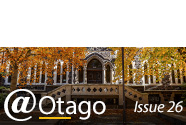
Also in this issue...
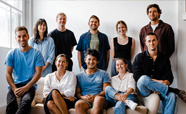
Creative disrupters keeping it real
Otago alumni are the creative force behind the government's online safety campaign, deftly using humour as a courier for a serious message.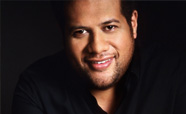
Your Story - Happy to be home and planning a concert tour
Jonathan Lemalu and his family have been busy settling into life in Dunedin, while also planning a national concert tour.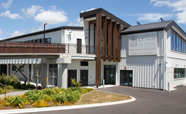
Networks and Events
Galleries from a variety of events that have taken place during 2021
Making a difference - Remembering Sophia
The first Sophia Michelle McMillan Crestani Scholarship was awarded in March this year and fundraising for a second is well advanced.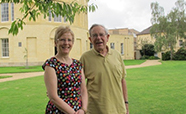
Supporting Otago - Dr Elman Poole
A generous gift of NZ$3 million will support southern students to pursue their studies at the University of Otago and University of Canterbury (UC).
Access the wealth of information shared by Otago (and visiting) academics available to view online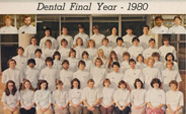
Why we ♥ Otago - Dental Class of 1980 reunion
The Dental Class of 1980 celebrated their COVID-delayed 40th reunion in February.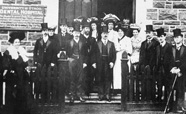
Otago images - Otago Dental School
Images from the Otago Dental School through the years.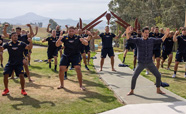
Alumni in the news
An overview of some of the amazing things that University of Otago alumni are doing right now.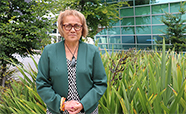
Pearl Matahiki leaving the helm of the Māori Centre
Pearl Matahiki on leaving her role as Tumuaki (Manager) of Te Huka Mātauraka (Māori Centre) after 20 years at the centre.
